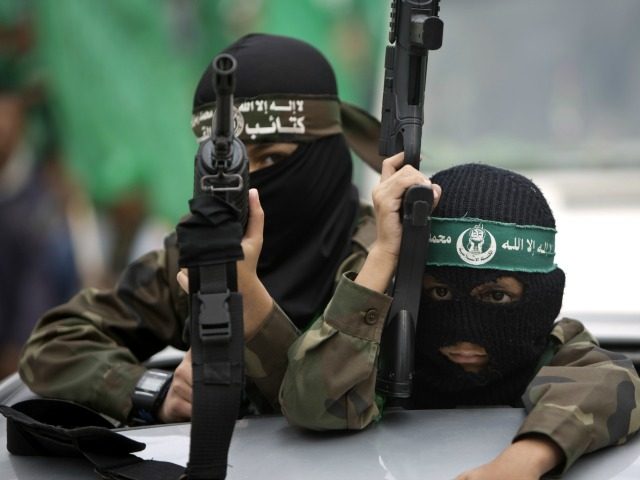TEL AVIV – Relations between Hamas and Iran have been growing closer recently, according to the international Saudi publication Al-Hayat, citing Palestinian sources.
The sources cited in the report claim that Hamas’ new politiburo chief in the Gaza Strip, Yehya Senwar, played a crucial role in improving relations, leading to an increase in financial support from Iran for Hamas’ military wing.
Al-Hayat also cited sources in Hamas who said that the organization is interested in developing relations with all Arab and Muslim countries, particularly Iran. The report noted that relations between the two have suffered since 2011, when Hamas adopted the Muslim Brotherhood’s position and supported Syrian groups fighting the regime of Bashar Assad, a key Iranian ally.
The publication also reported that Tehran has adopted a combative stance with the Palestinian Authority amid recent tensions between Hamas and their West Bank rivals – tensions which developed after the PA announced it would reduce money transfers to the Gaza Strip.
According to Al-Hayat, statements from Iranian officials that the Palestinian Authority is strangling the Gaza Strip were rejected by the Palestinian government in the West Bank when a spokesperson for Palestinian President Mahmoud Abbas, Nabil Abu Rodeina, claimed that Iran’s statements were false and Iran was deepening the schism between Palestinians in the West Bank and Gaza.
In March, Breitbart Jerusalem reported that due to the financial crisis facing Hamas in recent months, calls have increased within the organization to restore previous relations with Iran in order to improve its financial standing after it was forced to reduce employees’ paychecks by 60 percent.
Breitbart Jerusalem also quoted sources in Hamas claiming officials Usama Hamda and Muhamad Nasser met with Iranian officials at the Iranian embassy in Lebanon, a meeting also attended by Hezbollah representatives that dealt with improving relations between the sides in light of the Egyptian army’s continued campaign against the smuggling tunnels that connect the Gaza Strip to Egypt.
The Egyptian campaign has harmed the smuggling of goods through the tunnels, negatively impacting Hamas’ ability to collect taxes on the products smuggled through the tunnels, which contributed to the organization’s poor financial situation.
On Monday, Hamas announced the adoption of a new charter considered more moderate than its predecessor by recognizing a Palestinian state along the 1967 borders. However, the charter does not recognize Israel’s right to exist.
It remains unclear how Hamas will maneuver between its desire to rebrand itself through the new charter as a legitimate player on the Palestinian issue as well as on a regional scale, and the desire of its senior officials, particularly in the military wing, to move closer to Iran.

COMMENTS
Please let us know if you're having issues with commenting.